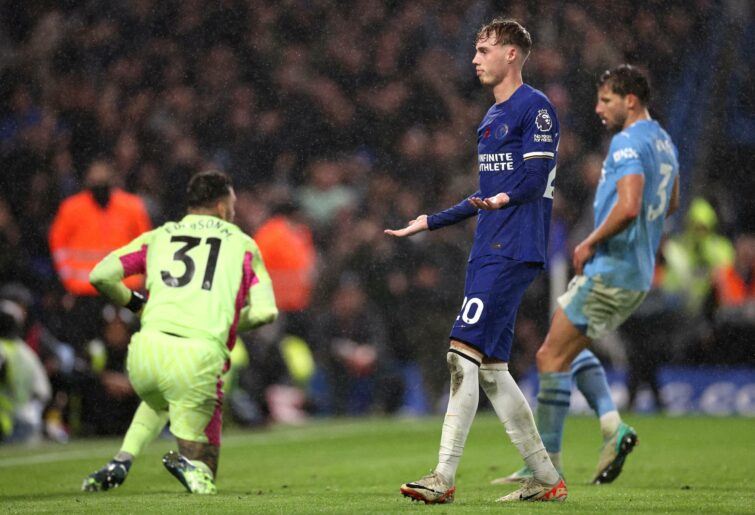After their dire 1-1 draw with Denmark, I was wondering how to describe this version of Gareth Southgate’s England.
‘Southgate-ball’ has no ring to it whatsoever, whilst ‘ready salted crisps of tactics’ might be witty but won’t escape the realms of pub jokes. Well, whatever “this” is, it isn’t working.
Southgate has committed the same crime as England managers of years gone by, chucking the best 11 players on the pitch and hoping they would work their magic simply wouldn’t work. It produced an unconvincing win over Serbia, with a lacklustre second half, and the aforementioned Denmark draw.
So, it’s clear that a big name has to go. But who? And who will replace them? That’s what we’ll look at today, going from the most likely replacement, to one that would be Southgate’s most radical yet.
Moving Bellingham further back, and shifting Foden to the middle
One of the biggest issues from England’s first two games was Trent Alexander-Arnold’s display at CDM. Kept out at right-back by the experienced Kyle Walker, Southgate, desperate to fit the Liverpudlian in, pushed Trent into midfield.
Whilst he still had his trademark attacking quality, Serbian and Danish attackers got past him way too easily. So, I suggest getting rid of Trent, dropping Jude Bellingham into a more defensive role, moving Phil Foden into CAM, and replacing him with either Anthony Gordon or Cole Palmer on the left.
Yes, Bellingham dropping deep means England loses Real Madrid’s top scorer’s attacking threat but Foden is more than capable of offsetting this loss. Foden has just had his best season ever for Man City, crucially in the No.10 role. He has struggled on the left, but moving him central gives him the freedom that he can so devastatingly destroy defences with. Now, we’ll look at Gorden versus Palmer in more detail.
Gordon or Palmer to replace Foden on the left
As mentioned, either Anthony Gordon or Cole Palmer could replace Foden in this team. This could be with the changes I’ve just described, or simply as a straight swap.
Will Cole Palmer start against Slovenia? (Photo by Ryan Pierse/Getty Images)
Gordon is the more orthodox left winger, who has had a stellar season for Newcastle, with 22 goal contributions in total. The quickest player in the England team, Gordon can stay up high and wide, stretching the opposition defence, and keeping them close to their box. Unlike Foden, Gordon won’t drift central, desperate for the ball.
Whilst not as technically gifted, Gordon might be a better fit than Foden.
Palmer might just create the same problems as Foden. Just like Foden, the Chelsea youngster prefers playing centrally, and wants to dictate the attacking play. Palmer is brilliant, there’s no ignoring that, but England might simply have too many playmakers. With so many conductors, there’s no one to actually play the instruments.
Ollie Watkins for Harry Kane
One of the England players who’s received the most hate so far is captain Harry Kane. Frustrated by a lack of service when he stays high, he had one touch in the first half of the Serbia game. He has dropped deep, bringing defences with him. Whilst this leaves space behind, England haven’t exploited this space, and it ends up with the opponent dominating possession in England’s half.
Just like the rest of the squad, Kane looks tired and slow. Is it time to inject some pace and bring in Ollie Watkins? I don’t see Southgate doing this, and I would agree with the decision to keep Kane.
Only three years ago, there were very similar calls to drop Kane after a slow start in the group stages. His response? To score in every knockout round bar the final. This is England’s record goalscorer, and whilst he’s been sluggish, he is still a clinical finisher. Dropping Kane would be insanity, and would only worsen England’s problems.
